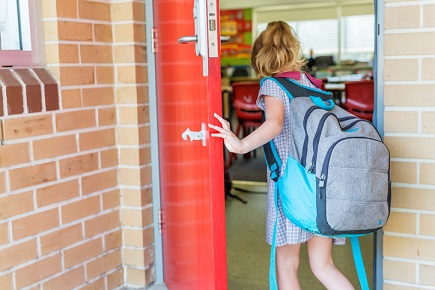
Queensland’s education sector is set for an ‘extraordinary’ year ahead of an expected enrolment spike across all year levels and Year 12s sitting external assessments for the first time in almost 50 years.
This is especially the case for the state’s Independent sector, which is expecting some 129,000 students to fill up 221 new and existing schools this year.
David Roberston, executive director of Independent Schools Queensland (ISQ), said that from the additional students, some 3,000 came from the projected annual growth.
Broken down, Independent schools are expected to welcome 7,800 first-time students in Prep while more than 12,000 will be entering Years 7 to high school.
To accommodate the influx of new students, Robertson said eight new independent schools and campuses will open this year.
Incoming Year 12 students who wish to pursue further studies are also in for some big changes as the state scraps the use of Overall Position (OP) this year.
Robertson said this is the first time since 1972 that the Queensland Certificate of Education will be based on an external assessment.
“The ATAR, which is the main mechanism used nationally for tertiary admissions, will count a broader range of student learning in Queensland including vocational education and training qualifications,” Robertson said.
Queensland announced its plan to ditch OP last year in response to the Australian Council for Educational Research’s (ACER) review on the said scheme back in 2015. The shift to ATARs also puts a stronger focus on Year 12 students who would opt to apply for courses interstate.
Same tips for newbies and returnees
For parents with children attending school for the first time, Justine Cirocco, Queensland Independent Schools Parents Network executive officer, provided some recommendations that schools can offer parents.
Cirocco said these parents should take the opportunity to form positive and collaborative partnership with their children’s teachers to boost their wellbeing.
Experts have been pushing for greater parental engagement in children’s education as parents have been shown to be a significant influence when it comes to improving learning outcomes.
“Decades of research has shown that parents have the greatest influence on their child’s learning when they: set high but realistic expectations for their child; regularly read and talk with them; encourage good study habits; create a stimulating home environment; and reinforce and connect learning in the classroom with everyday activities at home,” Cirocco said
Cirocco also encouraged parents to attend local school parent group meetings and social events, as well as relevant social media groups.
“Groups to connect with other parents and carers and to keep track of the many events and activities that occur throughout the school year,” she said.


